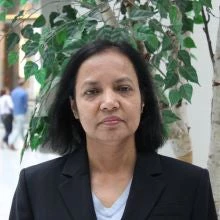There is a broad consensus among the academics and policy makers that education is one of the most important policy instruments in promoting inclusive economic growth. For example, Stiglitz (2012, P. 275) notes "(O)pportunity is shaped, more than anything else, by access to education", and Rajan (2010, P.184) argues "..the best way of reducing unnecessary income inequality is to reduce the inequality in access to better human capital". A focus on building the human capital of the poor seems triply desirable: (i) it is the only asset that every poor person 'owns'; (ii) human capital is inalienable and thus less susceptible to expropriation, an important advantage in many developing countries suffering from a lack of rule of law; and (iii) returns to education are expected to increase over time with globalization because of skill-biased technological change. Recognizing this unique role of education, a large number of developing countries over the last few decades invested heavily in policies such as free universal schooling (at least at the primary level), scholarships for girls, free books, and mid-day meals. The basic assumption is that such policies would lessen the burden on poor families for educating their children, and thus help reduce educational and income inequality and improve the economic mobility of the children from poor families. However, this widely accepted policy view does not take into account the effects of corruption in schools in developing countries.
Corruption is endemic in schools in developing countries. In Bangladesh, about half of the households reported paying some form of bribe for children's education. A study on seven African countries finds that 44 percent of parents had to pay illegal fees to send their children to school (World Bank (2010)). According to a New York Times report, bribery is rife not only in school admissions in China, even the front row seats in the classroom are up for sale. A recent Washington Post report also highlighted the corruption in admission into reputed public schools in China. The Global Corruption Report (2013) notes that "corruption acts as an added tax on the poor, who are frequently plagued by demands for bribes, particularly when they are trying to access basic services such as education."
In contrast to the common belief that corruption hurts poor more, the standard model of corruption in fact predicts that the rich are more likely to pay bribes, reflecting higher ability to pay. This prediction is driven by the dubious assumption that the probability and severity of punishment for bribe-taking does not vary across households in developing countries. In a developing country, the rule of law is lacking and the poor have little bargaining power; thus the enforcement of law is frequently selective and biased against the poor. In a recent paper titled "Admission is Free only if Your Dad is Rich: Distributional Effects of Corruption in Schools in Developing Countries", we construct a more realistic model, where the probability of punishment for bribe taking by a teacher depends on the household's economic status and show that bribes are likely to be regressive. The predictions of the model are then tested using household level survey data collected by Transparency International of Bangladesh. We use ten year average rainfall variations across villages to correct for the endogeneity of household income in rural areas. We find that corruption in schools in Bangladesh is doubly regressive: the poor are more likely to pay bribes (conservative estimate of income elasticity is -0.73); and among the bribe payers, the poor pay a higher share of their income. The Instrumental Variable results are in contrast to the Ordinary Least Squares (OLS) estimate showing a positive effect of household income on the amount of bribes paid for education. The evidence thus indicates that OLS regressions may yield spurious progressivity in bribes. At the end of the day "free schooling" is free only for the rich and corruption makes the playing field skewed against the poor.
References
New York Times, "A Chinese Education, for a Price", November 21, 2012.
Rajan, Raghuram (2010), Fault Lines, Princeton University Press.
Stiglitz, J (2012), The Price of Inequality, W. W. Norton and Company.
Transparency International (2013), "Global Corruption Report: Education", Routledge, New York.
Washington Post, "In China, parents bribe to get students into top schools, despite campaign against corruption", October 7, 2013
World Bank (2010), Silent and Lethal: How Quiet Corruption Undermines Africa's Development Effort, IBRD/ World Bank, Washington DC.


Join the Conversation